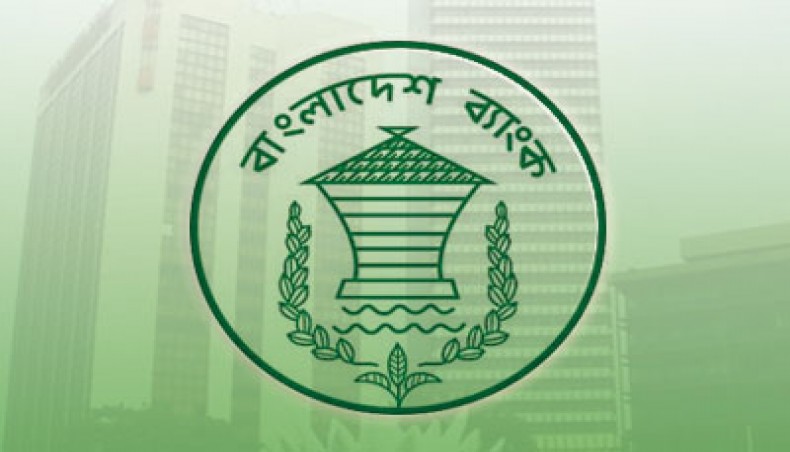FINANCIAL SECTOR Pledges put on back burner
The worst ever share market collapse, swelling bad loans and a series of scams coupled with the reserve heist have exposed that ruling Awami League’s priority election pledges on financial sector have been put on the back burner.
Economists observed that 2008 election pledges for ‘multi-pronged measures’ to check the growth of untaxed money and defaulted loans were hardly seen to be transformed into reality throughout rule of the back-to-back AL-led government governments.
Before the 2014 general election, boycotted by all opposition parties, the ruling AL promised to continue efforts to realise the 2008 election pledges.
Random political intervention and lack of god governance handicapped the regulatory bodies like the Bangladesh Bank and the Securities and Exchange Commission and resulted in unprecedented loan scams, hostile takeover of banks and high growth of defaulted loans, they said while talking to New Age.
Former Bangladesh Bank governor Salehuddin Ahmed said that corruption and mismanagement plagued the entire banking sector in absence of good governance throughout the tenures of the back-to-back governments.
Finance minister AMA Muhith told parliament on September13 that the amount of defaulted loans, including non-performing and written-off loans, as of June, was Tk 131,666 crore with five state-owned banks, including scams hit Sonali, BASIC and Janata, held Tk 56,283 crore or 43 per cent of the defaulted loan.
The overall defaulted loan was about Tk 55,709 core in 2010, the second year of AL’s previous tenure.
The series of loan scams in the state-owned banks, including embezzlement of Tk 1,200 crore by Bismillah Group from Janata Bank, Tk 3,500 crore loan scam by Hallmark Group in Sonali Bank and Tk 6,000 crore fictitious loan extended by previous board of directors led by politically appointed chairman Sheikh Abdul Hye Bacchu of BASIC Bank was the main reason for swelling bad loan.
Abdul Hye Bacchu still goes scot-free as the Anti-Corruption Commission has failed to bring any charge against him although the central bank in its investigation has found his involvement in the extension of huge amount of shady loan in 2009-2014.
Besides, the government provided Tk 9,788 crore for bailing out the state-owned banks with over Tk 6,000 crore sanctioned to Sonali and BASIC between FY13 and FY17.
The government also forced state-owned commercial banks Sonali, Agrani, Janata and Rupali and state-owned Investment Corporation of Bangladesh to provide Tk 715 crore to the scam-hit Farmers Bank despite criticism that the proposed bailout fund would set a bad precedence in the country’s banking history.
The unprecedented reserve heist of $101 million from the central banks accounts with the Federal Reserve Bank of New York in February 2016 by suspected hackers, who laundered those in casinos in the Philippines, grabbed the headlines in home and abroad.
The abysmal condition of the country’s banking sector raised questions about the government’s commitments to keep discipline of the sector, said Centre for Policy Dialogue distinguished fellow Mustafizur Rahman.
In April, the Financial Institutions Division made more than two dozens of recommendations, including regular disclosure of identity of big loan defaulters for quickening the recovery of bad loans.
The recommendations, however, remained almost unheeded by the state-owned banks and the central bank, said immediate past secretary of the division Eunusur Rahman.
Banking sector experts noted that hostile takeover of private banks by a certain group backed by the ruling party aggravated the pathetic condition of the banking sector and seen as a bad omen for the country as the banking sector was considered as the nerve of the economy.
They also criticised the government for amending the Bank Company Act 1991 widening family control on private commercial banks as four from a family, instead of two, were allowed to be bank directors and the tenure of directors was extended to three consecutive terms from two.
Former central bank deputy governor Ibrahim Khaled said that banking activities became a family business because of allowing more than two of a family in the banks’ board of directors.
Khaled, whose recommendations as chief of the share market probe committee in 2011 remained unaddressed, also said that the banking sector was in danger because of undue influence by the private bank owners.
He was also critical of the way the demutualisation was done to the Dhaka Stock Exchange, a major demand of market experts and investors to check the speculative boom and ultimate collapse.
The Dhaka Stock Exchange witnessed two collapses, in 1996 and 2010, with the Awami League-led government in power.
According to a report of the Asian Development Bank, the Dhaka Stock Exchange had lost about $27.1 billion or 22 per cent of the country’s gross domestic product to the price debacle in 2010.
Regulatory oversight in the banking sector and fragmented supervision by the stock market regulators were the major reasons behind the crash, said the report titled ‘Bangladesh: Second Capital Market Development Programme’ released in 2016.
The key index of the Dhaka Stock Exchange rose to its highest 8,918 points on December 5, 2010 before nose diving below 5,000 points and crashed below 4,000 points by July 2012 transforming 14 lakh new investors into almost penniless.
Many linked the unprecedented scams in the financial sector with the growing capital flight from the country against the backdrop the government’s failure to check it.
At least 3,746 Bangladeshis availed the investment opportunity until August 2017 and held the third place behind China and Japan in the ‘second home programme’ of Malaysia with none taking permission from the central bank to send the money there.
US firm Global Financial Integrity in its report released on May 1, 2017 said that illicit capital flight from Bangladesh was on the rise from 2007 and highest $9.66 billion was siphoned off in 2013.
News Courtesy: www.newagebd.net











